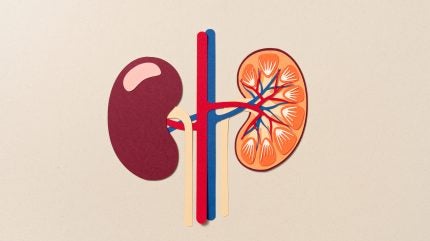
Roche’s subsidiary Genentech has shared positive Phase III data with the US Food and Drug Administration (FDA) as the company targets the billion-dollar lupus market for its CD20-targeting drug Gazyva (obinutuzumab).
While the market for systemic lupus erythematosus (SLE) and lupus nephritis therapies remains dominated by generic drugs, the FDA has approved only a few targeted biologics, including GSK’s Benlysta (belimumab) and AstraZeneca’s Saphnelo (anifrolumab), specifically for SLE in over 50 years.

Discover B2B Marketing That Performs
Combine business intelligence and editorial excellence to reach engaged professionals across 36 leading media platforms.
The latest Phase III data for Gazyva is important because, if approved, the drug would represent the first CD20-directed therapy for lupus nephritis with regulatory backing.
The Phase III REGENCY trial (NCT04221477) – which enrolled 271 patients – demonstrated that 46.4% of patients with lupus nephritis who received Gazyva plus standard therapy achieved complete renal response at 76 weeks, compared to 33.1% in the placebo group. The findings were presented at the World Congress of Nephrology in New Delhi, India, with Genentech confirming that the data has been shared with both the FDA and European Medicines Agency (EMA) for regulatory review.
Lupus nephritis is a severe manifestation of SLE that involves kidney inflammation and significantly increases the risk of organ damage and mortality. Current treatment options rely on immunosuppressive therapies, including steroids and mycophenolate mofetil (MMF), which have well-documented safety concerns such as infection risk, organ toxicity, and long-term complications.
The positive REGENCY data comes over 15 years after the failure of Roche’s other B-cell depleting therapy, Rituxan (rituximab), in lupus nephritis. Co-developed by Genentech and Biogen, Rituxan remains widely used off-label for lupus nephritis despite the lack of FDA approval. The Phase III LUNAR trial (NCT00282347), which evaluated the therapy in lupus nephritis, did not meet its primary endpoint back in 2012 – failing to show a significant improvement in renal outcomes when added to standard therapy. Despite these results, real-world evidence has supported the use of Rituxan for refractory lupus cases, which GlobalData estimates generated approximately $2.5bn in sales in 2023 despite being an off-label therapy for lupus.

US Tariffs are shifting - will you react or anticipate?
Don’t let policy changes catch you off guard. Stay proactive with real-time data and expert analysis.
By GlobalDataLike Rituxan, Gazyva is a monoclonal antibody that targets CD20, a protein expressed in B cells. However, Gazyva is glycoengineered to induce greater B-cell depletion than Rituxan. The drug is already approved in the US for several haematological malignancies, including chronic lymphocytic leukaemia and follicular lymphoma, and its potential expansion into autoimmune diseases could significantly increase its market presence. GlobalData predicts that Gazyva could generate up to $1.7bn in sales by 2030 if approved for lupus nephritis.
Genentech is also studying Gazyva in other autoimmune indications, including SLE, childhood-onset idiopathic nephrotic syndrome, membranous nephropathy, and paediatric lupus nephritis. The company has not disclosed a timeline for regulatory decisions but expects to work closely with agencies to secure approval for Gazyva in lupus nephritis. The global market for SLE and lupus nephritis is projected to reach $4.8bn by 2031, as per a report on GlobalData’s Pharma Intelligence Center.
GlobalData is the parent company of Pharmaceutical Technology.




